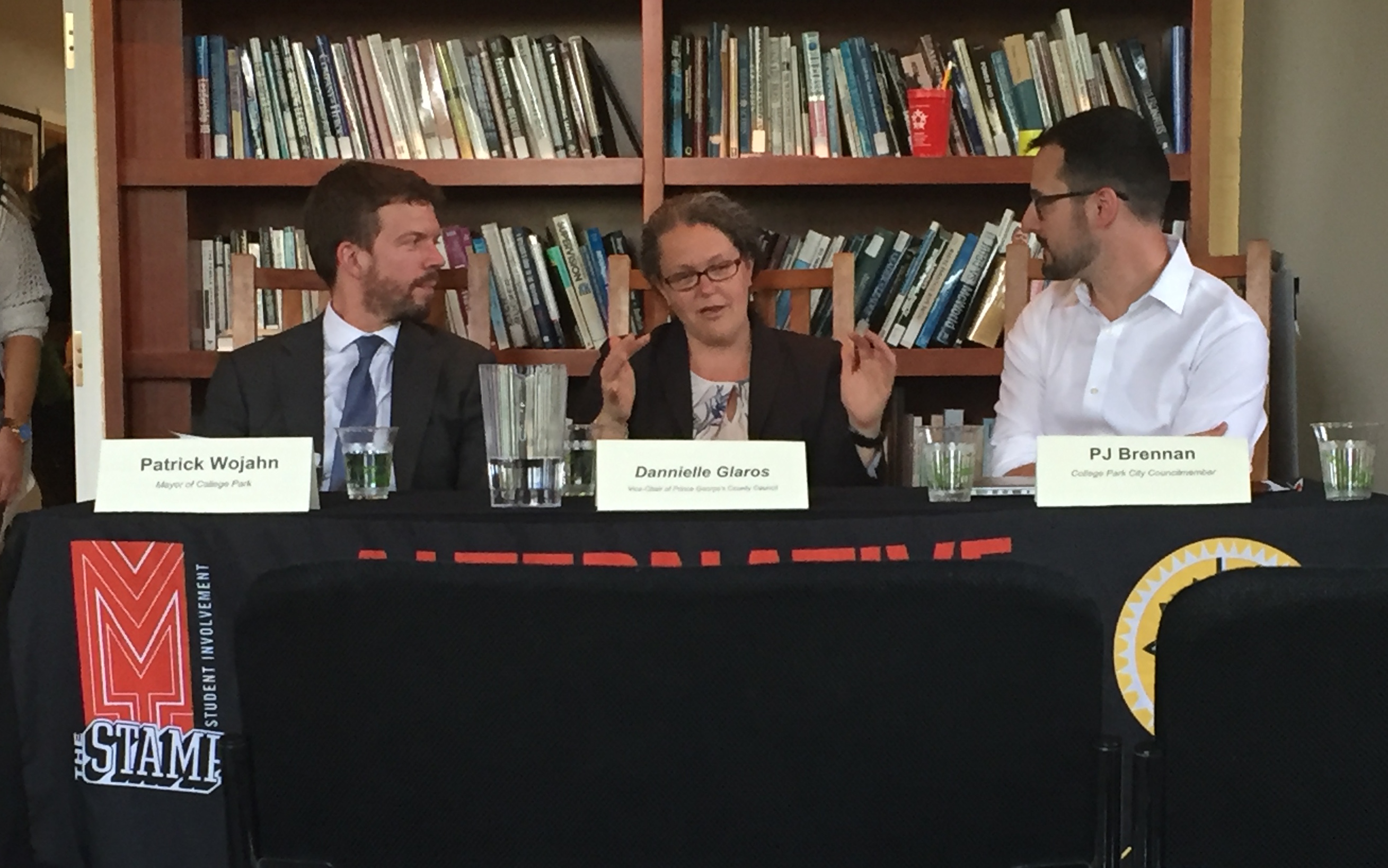By Carrie Snurr
For The Diamondback
The city of College Park and Prince George’s County have been working to improve the city for both residents and students — and getting University of Maryland students involved is one key way to do it.
“Students make up about 70 percent of College Park, and about 2 percent of them contact me,” Mayor Patrick Wojahn said to about 30 students in Taliaferro Hall Monday afternoon. “It’s not just in your interest to do that, it’s in the interest of the city as a whole.”
Wojahn, District 2 Councilman P.J. Brennan and Prince George’s County Council Vice Chair Dannielle Glaros sat on a panel for the Alternative Breaks-hosted event “Creating Change Through the Political Process.”
The panelists talked about strengthening relationships between this university and the city and different initiatives for reviving the area, such as expansions along Route 1.
“There’s an evolution going on in the way the city and the university interact. It’s not until the recent administration that we’ve started to see a shift from adversary between the city and the college,” Brennan said. “It speaks to a new relationship, it brings the city into university issues and the university into city issues.”
Glaros and the other two panelists agreed that anyone can get involved in the political process to start a dialogue about issues that arise. She stressed that anyone can contact a council member to discuss an issue that might be important to them, even if it isn’t talked about at council meetings.
“Personal stories matter,”she said. “As you’re talking to people, share why it’s of importance to you. The most important thing is to have that conversation. Too many of us take a backseat and let things move on without trying to get involved.”
Wojahn, Brennan and Glaros emphasized the importance of college students staying involved in local government because they make up a majority of the city’s residents. Glaros told the audience people can get involved in the community without being involved in politics by joining university groups.
The panelists also answered questions from the audience, with topics ranging from the risk of gentrification of the city, city and county council members reaching out to less proactive students and off-campus student housing. Wojahn said he hopes for the council to look into affordable and safe options for students who want to live off campus.
“The discussion was really interesting, I don’t know that much about politics,” said Sumit Rajpara, a senior biology major. “But it was interesting to hear what college students had to say and what questions they had.”
The panelists discussed how they became involved in politics as well. All three said they did not start out thinking they would go into politics, but instead started through activism.
Wojahn became interested in politics while studying in Moscow during his junior year of college, he said, and later became involved with the LGBT activist community in Russia.
“I saw people facing huge adverse conditions against them. I saw people working against those odds to make change,” he said.
Brennan also became interested in politics when he became involved in the Gay Men’s Chorus of Washington, and met people who got started in activism during the AIDS outbreak in the 1980s.
Glaros grew up in this state, worked for former Gov. Parris Glendening, and served for eight years as the chief of staff for former council member Eric Olson. She said she got her start by being interested in local politics.
She advised the audience to examine the background of the candidates running in today’s elections, since many of them got started by pursuing different issues.
“There’s a lot of different ways that you can push and create political change,” Glaros said.



